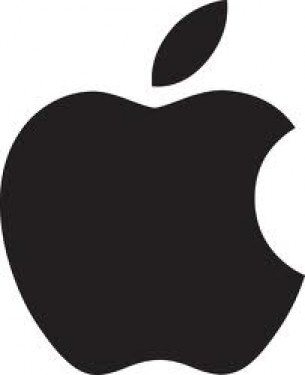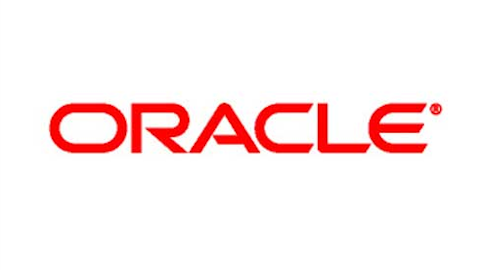The Chinese stock markets got hit by a panic wave of selling on Monday. Goldman Sachs Group, Inc. (NYSE:GS) went ahead and cut back economic growth forecasts for the economy. Goldman Sachs projects that the economy will grow at 7.4% for 2013, and 7.7% for 2014. Goldman Sachs Group, Inc. (NYSE:GS) lowered its previous outward looking growth forecast from 7.8% for 2013 and 8.4% for 2014.
The economics of China
The vast majority of the decline is currency driven as the economy is heavily dependent on exports.
The Dollar-Chinese Yuan currency pair has declined by 3.67% over the course of a year, so it’s no surprise that GDP is declining by a significant amount. China is heavily dependent upon trade for GDP. The decline in the currency pair may continue because of political pressure from the United States, which will have a predictably negative effect on GDP.
Goldman Sachs Group, Inc. (NYSE:GS) anticipates the economy to stabilize its growth. So we’ll just have to sit back and see. The biggest problem with China’s GDP figure is that it includes exports, more specifically processing trade. The processing trade represented around 55% of trade in 2010. Processing trade is China’s way of purchasing raw materials, and manufacturing them. Chinese manufacturers earn a very small percentage on the total value of the good sold, but it drastically inflates the total GDP of China’s economy. A small decline in processing trade due to foreign exchange effects and you see why China’s GDP growth rate is declining.
It is estimated that, in 2012, China had $2.05 trillion in exports compared to its $8.26 trillion in GDP. 25% of China economy is dependent on exports, or approximately 12.5% of the economy depends on processing trade. A 3% increase in the value of the Chinese Yuan decreased the demand for processing trade, which lowered the growth rate of China’s economy.
How to position
There are a lot of structural deficiencies in the Chinese economy. Some of the problems stem from the government, and how it redistributes taxpayer money. The divide between rich and poor is definitely widening, and political corruption will rise due the concentration of political power among a small number of people.
There are a whole myriad of issues when investing into China. I think that consumer-driven businesses will do well in China, but investing directly into Chinese companies could be too risky right now, especially when considering the amount of perceived risk. I think that investors should consider U.S. equities that have exposure to China instead.
Settle on Apple
Investing into Apple Inc. (NASDAQ:AAPL) is a no-brainer right now. I find it highly probable that the company will eventually improve its security features in order to lessen the losses from jail-breaking devices. The company will eventually adopt an effective pricing strategy across the globe that could boost profitability going forward.
Apple Inc. (NASDAQ:AAPL) doesn’t have much of a market presence in China, but most of that is driven by the fact that its prices are too high for the average Chinese consumer. Apple will address this in the near future, which will boost earnings growth.
Analysts on a consensus basis anticipate the company to grow earnings by 20.88% on average over the next five years. The company currently trades at a 9.9 earnings multiple which is reasonable relative to future earnings growth. The company pays a 2.95% dividend yield and is initiating a $60 billion share buy-back program. These combined factors will keep an effective floor under the stock price. Dips should be bought as a part of a longer-term accumulation strategy.
Procter & Gamble your best gamble
The company believes that the global economy presents phenomenal opportunities going forward. The company projects that between 2010 and 2020 the middle class will grow by 1.4 billion and 98% of that will come from the emerging markets. The Procter & Gamble Company (NYSE:PG) sells non-cyclical products (things that are always in demand) like tooth paste, and toilet paper. The company will grow earnings based on the economic outlook.
The company believes that it can cut back costs by $10 billion by 2016, and with the company currently earnings $10.7 billion, it means that there is the potential of earnings doubling over the course of three years. Assuming a double in earnings and the company’s 19.4 earnings multiple is actually reasonable. The company also compensates its investors with a 3.11% dividend yield.
Never forget the value of produce
The Kroger Co. (NYSE:KR) operates a diversified portfolio of grocery chains. You might know some of them, and some of them will be completely unfamiliar to you. The company has 3,600 super markets across the United States. The company’s management team blew out earnings in its most recent quarterly earnings announcement. The company grew its earnings per share by 18% year-over-year. The growth in earnings was driven by a slight improvement in its operating profit margin.
The management team projects that it can grow earnings by 8 to 11% over the long-term. The growth is paired with a 1.82% dividend yield. The company trades at 12.2 earnings multiple. The company’s valuation is reasonable when considering the long-term growth potential along with the margin of safety from selling food. The grocery industry is heavily subsidized through food stamps within the United States making it a non-cyclical.
Conclusion
Apple Inc. (NASDAQ:AAPL) will continue to grow earnings regardless of what goes on in China. Apple has a near non-existent presence in China, so if anything, China will only add to Apple Inc. (NASDAQ:AAPL)’s growth. The Procter & Gamble Company (NYSE:PG)will cut costs, which will contribute significantly to the company’s earnings, so I doubt volatility in China could hamper the company’s growth. Finally, The Kroger Co. (NYSE:KR) doesn’t have a single grocery store in China. China isn’t going to hurt these three companies.
Alexander Cho has no position in any stocks mentioned. The Motley Fool recommends Apple and The Procter & Gamble Company (NYSE:PG). The Motley Fool owns shares of Apple Inc. (NASDAQ:AAPL).
The article Here Is How You Deal With the China Sell-Off originally appeared on Fool.com.
Alexander is a member of The Motley Fool Blog Network — entries represent the personal opinion of the blogger and are not formally edited.
Copyright © 1995 – 2013 The Motley Fool, LLC. All rights reserved. The Motley Fool has a disclosure policy.






